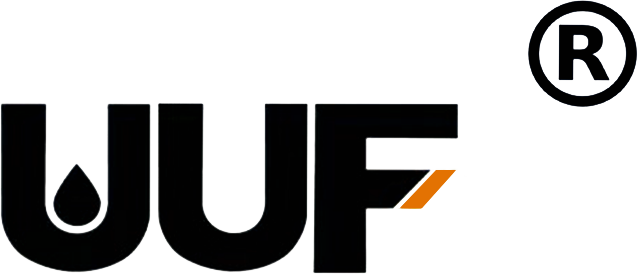Enhance Vehicle Performance with Durable Oil Seals from China
Time:
2025-09-22
Enhance Vehicle Performance with Durable Oil Seals from China Table of Contents 1. Introduction to Oil Seals and Their Importance 2. What Are Oil Seals? 3. Benefits of Durable Oil Seals 4. Types of Oil Seals Available in China 4.1 Radial Oil Seals 4.2 Axial Oil Seals 4.3 Specialty Oil Seals 5. Applications in the Automotive Industry
Enhance Vehicle Performance with Durable Oil Seals from China
Table of Contents
- 1. Introduction to Oil Seals and Their Importance
- 2. What Are Oil Seals?
- 3. Benefits of Durable Oil Seals
- 4. Types of Oil Seals Available in China
- 5. Applications in the Automotive Industry
- 6. Choosing the Right Oil Seal for Your Vehicle
- 7. Maintenance and Replacement of Oil Seals
- 8. Conclusion
1. Introduction to Oil Seals and Their Importance
Oil seals, integral components in the automotive sector, are designed to retain lubricants and prevent contaminants from entering mechanical systems. These seals are essential in maintaining optimal performance and enhancing the longevity of various engine components. Notably, **durability** plays a crucial role; high-quality oil seals produced in **China** stand out for their reliability and efficiency.
The vehicle's performance heavily relies on the integrity of its **oil seals**. A compromised seal can lead to oil leaks, which not only diminishes lubrication but also results in increased friction and wear. Thus, understanding the significance of durable oil seals can lead to better maintenance practices and improved vehicle performance.
2. What Are Oil Seals?
Oil seals, often referred to as rotary seals, are mechanical devices that provide a barrier to retain lubricants in machinery. They are engineered to adapt to different applications, including engines, gearboxes, and hydraulic systems. Typically made from materials like rubber, silicone, or thermoplastics, oil seals are designed to withstand extreme conditions, such as varying temperatures and pressures.
These seals function by creating a tight seal around rotating shafts, effectively preventing leakage while minimizing contamination from dirt and moisture. Their structural design allows them to accommodate radial and axial loads, making them versatile components for various automotive applications.
3. Benefits of Durable Oil Seals
Investing in **durable oil seals** offers several advantages that directly impact vehicle performance:
3.1 Enhanced Reliability
Durable oil seals reduce the risk of leaks and failures, ensuring that engines and other systems operate smoothly. This reliability translates to fewer maintenance issues and lower repair costs over time.
3.2 Improved Efficiency
By preventing oil leaks, high-quality seals help maintain optimal lubrication, minimizing friction among mechanical components. This efficiency can lead to improved fuel economy and overall vehicle performance.
3.3 Longevity of Components
Durable oil seals protect critical engine parts from wear and tear, contributing to the overall longevity of the vehicle. By maintaining a clean and lubricated environment, these seals play a significant role in preserving the integrity of engine components.
3.4 Cost-Effectiveness
While the initial investment in high-quality oil seals may be higher, the long-term savings are substantial. Reduced maintenance needs and extended component life provide significant financial benefits.
4. Types of Oil Seals Available in China
China is known for producing a diverse range of oil seals that cater to various automotive needs. Understanding the types available can help in selecting the right one for your vehicle.
4.1 Radial Oil Seals
Radial oil seals are the most common type, designed to seal rotating shafts. They are widely used in engines, gearboxes, and other automotive applications. These seals typically feature a lip that makes contact with the shaft, creating a barrier that prevents leaks while allowing for rotation.
4.2 Axial Oil Seals
Axial oil seals operate in applications where the sealing element must accommodate axial movement. They are often used in applications like hydraulic cylinders and are designed to handle both pressure and vacuum conditions.
4.3 Specialty Oil Seals
For specific applications, specialty oil seals are designed to meet unique requirements. These may include seals resistant to extreme temperatures, chemicals, or specific environmental conditions, catering to specialized machinery and vehicles.
5. Applications in the Automotive Industry
Durable oil seals find applications across various automotive components, enhancing overall vehicle performance. Some common applications include:
5.1 Engine Sealing
Oil seals play a vital role in engine sealing, preventing oil from leaking out of critical areas like the crankshaft and camshaft. This sealing ensures that lubricants remain in place, reducing wear and maintaining optimal engine performance.
5.2 Transmission Systems
In transmission systems, oil seals are essential for maintaining proper lubrication in gearboxes. They help to prevent fluid leaks, ensuring that the transmission operates smoothly and efficiently.
5.3 Differential and Axle Seals
Oil seals are crucial in differential and axle assemblies, preventing oil leaks and maintaining lubrication in these high-friction areas. This protection is essential for ensuring safe and efficient vehicle operation.
6. Choosing the Right Oil Seal for Your Vehicle
Selecting the appropriate oil seal is crucial for ensuring optimal vehicle performance. Here are some factors to consider:
6.1 Material Compatibility
When choosing an oil seal, consider the materials used. Seals made from high-quality rubber, silicone, or thermoplastics are often more durable and resistant to wear.
6.2 Size and Fit
Ensure that the oil seal is the correct size for your vehicle. A proper fit is essential to prevent leaks and ensure effective sealing.
6.3 Temperature and Pressure Ratings
Different applications may require oil seals that can withstand varying temperatures and pressures. Evaluate the specific needs of your vehicle to select the right seal.
7. Maintenance and Replacement of Oil Seals
Regular inspection and maintenance of oil seals are vital for ensuring vehicle longevity and performance. Here are some tips for maintaining and replacing oil seals:
7.1 Regular Inspections
Conduct routine inspections to identify any signs of wear or damage. Look for oil leaks around the seals, which may indicate the need for replacement.
7.2 Proper Installation
When replacing oil seals, ensure proper installation to prevent future leaks. Follow manufacturer guidelines and consider consulting a professional if you are unsure.
7.3 Timely Replacement
If an oil seal shows signs of wear or damage, replace it promptly to prevent further complications. Addressing issues early can save significant repair costs in the long run.
8. Conclusion
In conclusion, **durable oil seals** from China are essential components that significantly enhance vehicle performance and durability. Understanding the types, benefits, and applications of oil seals can help vehicle owners make informed decisions about their maintenance and replacement. Investing in high-quality oil seals not only improves the reliability and efficiency of your vehicle but also contributes to long-term cost savings. By prioritizing these essential components, you can ensure that your vehicle operates at its best for years to come.
Keyword:
China oil seals


















